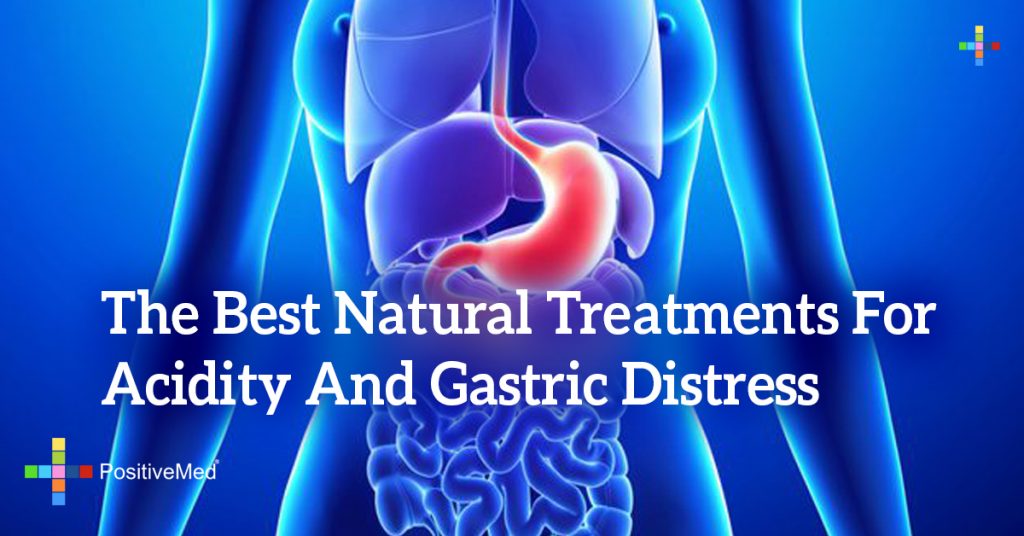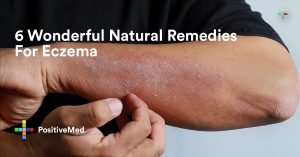
The Best Natural Treatments for Acidity and Gastric Distress
[nextpage title=”…”]
That burn after eating, the pain of acid reflux that afflicts millions daily, erupts in the esophagus like a volcano. Over 60 million suffer from heartburn at least once a month, 25 million of them every day.

Gastroesophageal reflux disease (GERD), a grave form of acid reflux, is the most common digestive disorder in the United States, where Americans spend more than $15 billion annually on medications to block acid formation. Some find temporary relief from use of prescribed or over-the counter medication, neither of which addresses the cause of the condition, only the symptoms.
Although it would seem natural to attribute acid reflux and GERD to too much acid, the actual cause is not enough acid. Supporting this theory is the fact that both heartburn and GERD become more frequent with age as the amount of stomach acid decreases. The Tahoma Clinic in Washington State has found that heartburn and GERD sufferers have low, not high, stomach acid levels. In over 25 years, the clinic has seen patients with too much stomach acid very rarely.
Understanding Cause and Effect
The fact that heartburn and GERD are results of too little acid raises a question: Why do antacid medications relieve the painful symptoms? The answer is that what causes the burning pain is stomach acid backing up into the esophagus, where any amount of acid hurts because esophageal tissue is not, as is stomach tissue, impervious to the acid’s corrosive impact.
Simply consuming antacids cannot resolve the recurrent problem, only suppress a symptom. Western medicine too often suppresses symptoms without treating their causes.
The essential cause of GERD is excessive pressure in the intra-abdominal area. Reflux happens when bloating pushes stomach acid up through the lower esophageal sphincter. Among many contributory factors are overeating, obesity, bending over or reclining after eating, and spicy or fatty foods. Current theories on causation processes:
- Incomplete Carbohydrate Absorption. Some microbiologists say low stomach acid levels cause bacterial overgrowth and carbohydrate malabsorption that causes pressure that causes acid reflux. One function of stomach acid is prevention of bacterial overgrowth.
With sufficient acid present, carbohydrates break down into glucose readily absorbed. With insufficient acid or excessive amounts of carbohydrates, some are not absorbed but fermented by intestinal bacteria. The fermentation produces gaseous pressure.
- H-Pylori Infection. Although not without challengers, one theory is that the common Helicobacter pylori infection can cause ulcers and acid reflux. Blood or breath tests can detect this condition, which is treatable with antibiotics.
- Food Sensitivities. Gluten and lactose food sensitivities may cause acid reflux. A food allergy/celiac test can detect these or rule them out.
- Yeast. Yeast overgrowth, candida, in the small intestine can lead to acid reflux but is not difficult to reverse. Causes of yeast overgrowth are overuse of antibiotics, diet, environmental factors, and obesity.
[/nextpage] [nextpage title=”…”]
Why Antacid Medications Do More Harm Than Good
Proton pump inhibitors are some of the drugs most prescribed for heartburn and acid reflux to block stomach acid production. While this remedy may sound appropriate when stomach acid creeps painfully up the esophagus, it’s actually the worst possible as the problem is typically too little stomach acid production.
Inhibitors like Nexium, Prilosec, and Prevacid originally were to treat a very limited range of severe problems. According to the San Francisco Department of Public Health, proton pump inhibitors are for the treatment of
RELATED ARTICLE: Chronic Heartburn And Acid Reflux Might Be Early Sign Of Cancer. THIS Is What You Need To Know
- Bleeding ulcers,
- Zollinger-Ellison syndrome, a rare condition that causes excess acid production, and
- Severe acid reflux, where an endoscopy confirms damage to the esophagus.
Natural Remedies for Acidity, Acid Reflux, and Heartburn
The common purpose of all of these natural remedies is to restore intestinal chemical balance:
- A Low-Carbohydrate Diet: One study found that even when participants drank coffee, smoked tobacco, and indulged in GERD-causing habits they eliminated symptoms within one week on a low- carbohydrate (20 grams/day) diet. They discontinued all medications and remained symptom-free after increasing their carbohydrate intake to 70 percent of their total diet.
- A Wheatless Diet: Many people find that without wheat their acid reflux condition improves or disappears. Be sure to know where gluten is present in candy, deli meat, salad dressing, sauces, soups, processed foods, and, of course, wheat products.
- No Junk: Processed food, especially sugar, exacerbates heartburn and GERD. Stop eating these foods to heal the digestive tract. Eat small meals during the day based on steamed vegetables, organic broths, rice, fish, and free-range organic chicken. Avoid raw foods until the condition improves. Eliminate spicy foods and coffee and don’t eat within three hours before bedtime.
- Yeast Overgrowth: There are numerous natural ways to address issues with yeast overgrowth.
- Gymnema sylvestre, cowplant, has the ability to prevent or reverse yeast overgrowth.
- Olive leaf extract has antimicrobial, antibacterial, antiviral, and anti-fungal properties. The active ingredient, oleuropein, converts in the body to elolenic acid that boosts immunity against pathogens including yeast fungi.
- Garlic has potent anti-fungal properties in active ingredients alliin and allicin. Add more garlic to the diet to keep yeast at bay.
[/nextpage] [nextpage title=”…”]
Other natural ways to heal digestive distress:
- Soothing and carminative, basil leaves can relieve acidity, gas, and nausea instantly. Chew thoroughly.
- Buttermilk contains lactic acid that alkalizes excess acidity
- Cinnamon is good for digestive health as a natural antacid that dispels stomach gas.
- Take two or three digestive enzyme capsules with each meal.
- Eat more probiotics.
- Take two to five grams of glutamine powder twice a day.
- Chew two to three tablets of deglycyrrhizinated licorice 15 minutes before meals.
- Drink a mixture of two tablespoons of apple cider vinegar with warm water and a teaspoon of raw honey a few times a day, especially before meals.
Instead of antacids when heartburn or acid reflux strikes, try some of these natural remedies. Give the body time to adjust, be patient and persistent, and results will be surprisingly pleasant.
[/nextpage]





